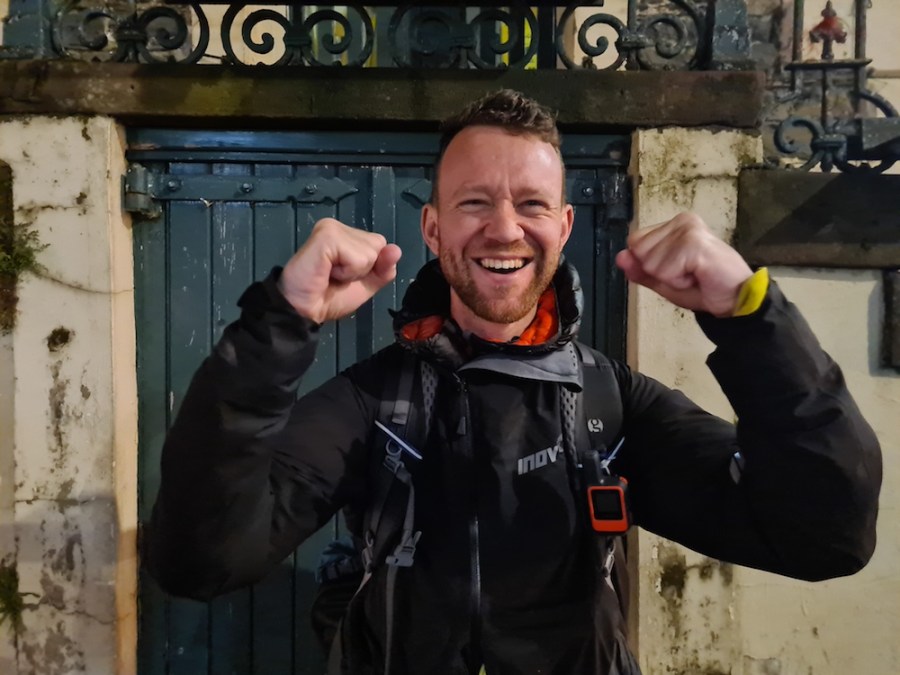As James Forrest sets a new Wainwright record, we look back on a summer of record-breaking mountain challenges.
This week, The Great Outdoors writer James Forrest set the record for the fastest self-supported round of the Wainwrights. The Cumbria-based adventurer managed to bag 214 Lake District peaks over the course of 14 days and 11 hours, walking 525km and ascending 36,000 metres in the process. Most impressively, he achieved the feat with no support crew or pre-arranged help, wild camping for 14 consecutive nights and carrying his own supplies.
“I am ecstatic with the time I’ve set and so relieved to have finished,” said James. “The atrocious weather transformed the journey into a rather gruelling and traumatic experience – I’ve never felt so utterly miserable and unhappy on a mountain before. I thought the torrential rain and strong winds would never stop.
“But I’m so happy that I found the strength and resilience to keep going and make it to the finish line – it was really emotional arriving into Keswick, cheered on by friends and family. That moment will stay with me forever.”
James’ achievement comes at the end of an extraordinary summer, which has seen several mountain records challenged and broken. Was it the relief of escaping the confines of lockdown? The extra time to train? A new appreciation of the outdoors? Whatever the case, here’s out roundup of this summer’s most impressive mountain feats.
Donnie Campbell’s record Munro time
Earlier this month, runner Donnie Campbell summited every one of Scotland’s 282 Munros in a time of just 31 days and 23 hours. The 35-year-old endurance runner beat the existing fastest time for a self-propelled round of the Munros by more than seven days. Not only did he run a total of 1,422km with 126,143m of ascent, he also cycled 1,443km on his journeys between peaks.
https://twitter.com/GetActiveRunnin/status/1301792414047309827
Two simultaneous Pennine Way records
Until this summer, the record time for completing the 268-mile Pennine Way had stood unchallenged for 31 years. Then, remarkably, it was broken twice within the course of eight days. On 16th July, John Kelly set a new time of 2 days, 16 hours and 46 minutes. He only had just over a week to celebrate his record, though, before it was smashed by Damian Hall. Damian ran the Way in 2 days, 13 hours and 34 minutes, beating John’s time by more than three hours. He stopped to collect litter along the way and revealed an Extinction Rebellion flag at the finish line in Edale.
https://twitter.com/Ultra_Damo/status/1287395266904170500
Sabrina Verjee runs the Wainwrights
In mid-July, ultrarunner Sabrina Verjee set out to complete a round of the Wainwright fells in record time. She missed out on the overall record after suffering from knee problems en-route – but she did become the first woman known to have completed a continuous round of the Wainwrights. She subsequently asked for her attempt not to be included as a record, saying: “There were a few more descents where I had to lean on my supporters and I think that this allowed me to descend far quicker than I would have on my own. I visited every summit and made the entire way on my own efforts with every step taken by myself but having to lean on supporters to descend is not appropriate for taking a record.”
Kim Collison’s Lakeland 24-hour record
In 1997, Mark Hartell managed to run 77 Lakeland peaks in 24 hours. That record stood for an impressive 23 years – until ultrarunner Kim Collison broke it in July. Kim managed to add Fleetwith Pike to the peaks completed by Mark Hartell, increasing his total tally to 78.
Alex Staniforth’s almost-made-it Three Peaks challenge
Finally, a special mention for Alex Staniforth, who narrowly missed breaking the record for a self-propelled round of the Three Peaks earlier this month and raised over £10,000 for the Mind Over Mountains charity in the process. Running 450 miles and tackling the equivalent of two marathons per day, the mental health campaigner completed the challenge in 9 days, 12 hours and 51 minutes – just an hour outside the record time. He confessed the exhaustion caught up with him towards the end of the attempt, but added: “getting down safely was more important.”
https://twitter.com/alex_staniforth/status/1300331855485468672







